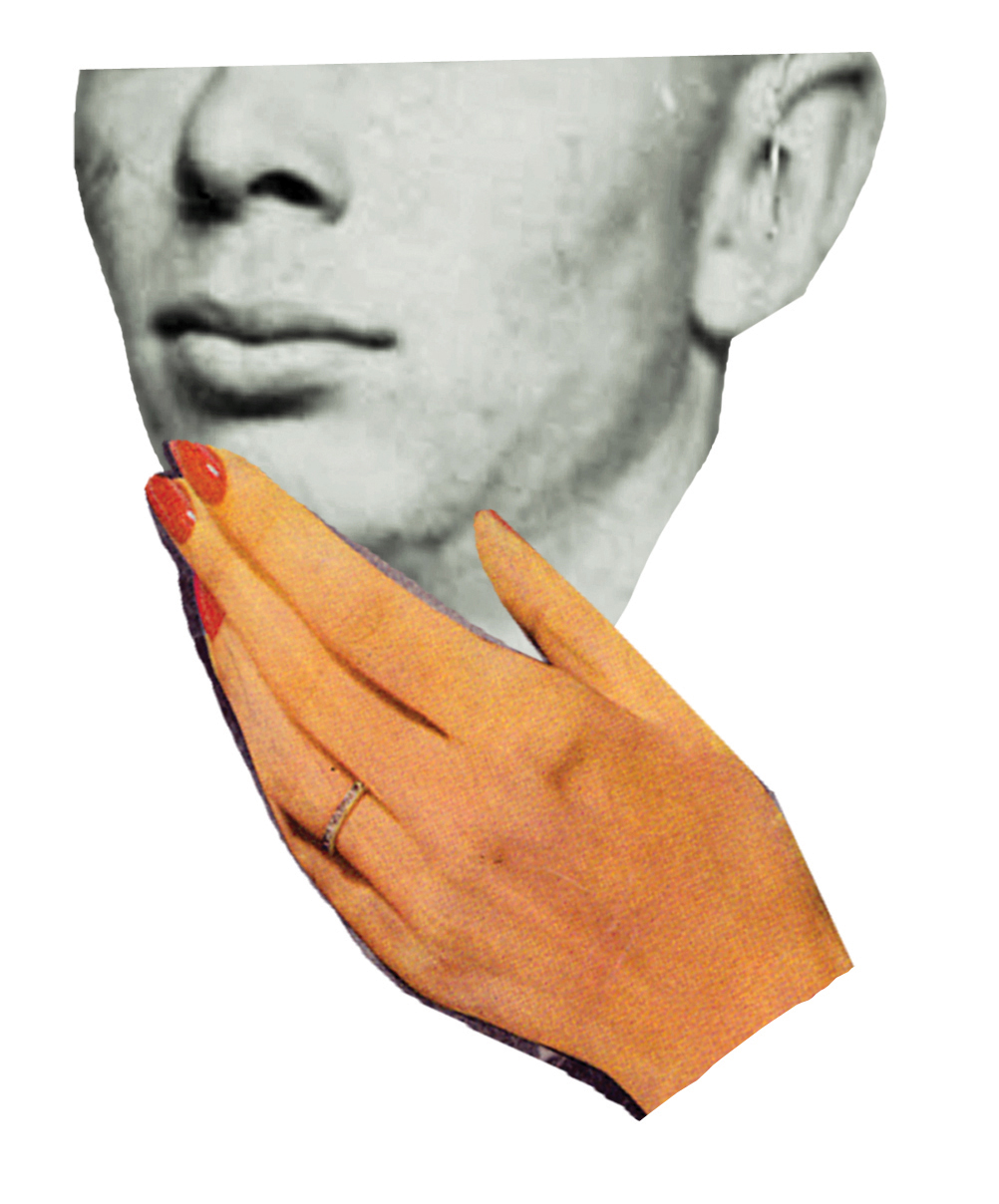 |
|||||||||||
|
November/December 2012 Lost & Found Connections: BY ELEANOR KRASSEN COVAN
In my profession I study the life course in order to predict how aging individuals interpret what is meaningful. Specifically, I examine four elements: personal attributes (what makes each of us unique, such as combat experience or a college degree), cohorts (groups of people who move through life together), period effects (events in history that affect all of us, but not necessarily in the same way), and social stratification (differential access to rewards and privileges). Combat produces trauma that has life-long consequences. No one knows better than readers of The VVA Veteran that war veterans experience heightened levels of stress, secondary health problems, and increased morbidity. Combat-related stress also has an impact on spouses of veterans and their children. Because I value scholarship and because combat-related stress affects my family, I know that it is important to learn about that stress from those who experience it. As an academician, I have spent the last six years trying to learn everything I can about the perspectives of Vietnam veterans and their wives. My husband served two and a half tours in Vietnam as a helicopter crew chief. The first thing he said when we met was, “I am a Vietnam veteran.” As his wife, I have been trying to figure out what this means ever since. I suspect that he, in turn, has been discerning what it means to be married to a college professor, especially since my personal history includes having once stood on the National Mall in a crowd that marched for peace, while his history included hanging out of helicopter gunships. Although we are in the same birth cohort (he was born in 1948, and I in 1949), we knew little about each other. People like us rarely meet one another. We tend to interact with people whose experiences are like ours. Before I met my husband I had no personal relationships with Vietnam veterans. No one I knew between 1967 and 1972 (when Ed was in Vietnam) was there, although I knew many who struggled to stay in school to avoid military service. Our generation came of age at a time when a tidal wave of events stratified us economically, socially, and politically. These events often determined who went to war and who went to school, who lived where, who married whom, and what information we shared or kept to ourselves. In consequence, what my husband and I thought we knew when we met was skewed by stereotypes gleaned from media reports that had sensationalized what was different about us. That I had comfortably stood in a crowd praying for peace while men of my age fought for survival was unfathomable.
In middle age we met, still with the naïveté of young adults, to explore the issues that divided us. While I embraced the idealism of the flower children, I never opposed, hated, berated, or otherwise demeaned those who served in Vietnam. It is also clear that my husband longs for peace as much as do I, yet he would sacrifice his life for me and others in a heartbeat. In my analysis of the life histories of veterans and their spouses, I use qualitative methods. In 2007, twelve Vietnam combat veterans who had been hospitalized simultaneously in 2006 for post-traumatic stress disorder attended a reunion. They volunteered to participate in my videotaped life history project, motivated by a desire to help other veterans and to remain united. I didn’t then, but now understand the depth of their motivation. They refer to themselves as “therapy brothers.” They trust one another and talk with me because I am a brother’s spouse. I have shared life stories with many other Vietnam-veteran families who have permitted me to share their stories. Period effects help to explain why the experience of Vietnam veterans differs from those of other veterans and from those of their own birth cohort who were not in Vietnam. Almost all Vietnam veterans were here in the United States when airplanes flown by terrorists crashed into the World Trade Center, the Pentagon, and a field in Pennsylvania on September 11, 2001. This affected all of us, but it triggered symptoms of acute PTSD among the Vietnam veterans who shared their stories with me. Period effects were also predictive of what Vietnam combat veterans experienced at an earlier age. While they were in Vietnam, those of us at home were facing a different form of tumult. While combatants review events such as the 1968 Tet Offensive, the 1969 conviction of Lt. Calley for his role in the My Lai massacre, and the 1973 visit to Vietnam by Hanoi Jane Fonda, those at home associate 1967-68 with civil rights and sexual revolutions; 1968 with the assassinations of Robert Kennedy and Martin Luther King, Jr.; 1969 with Woodstock; and 1973 with Roe v. Wade. These differences in perspective certainly contributed to what Vietnam veterans faced when they returned from war and the welcome-home they never received. Mentioning period effects is an oversimplification, of course. Perspectives of veterans vary tremendously depending on when they experienced combat in Vietnam because that’s when they were removed from the events at home. “Home,” of course, is a profound concept. Some say that “home is where the heart is,” yet I have learned that “home” encompasses both heart and soul. It saddens me that Vietnam veterans must welcome one another home forty years after combat. Others who know veterans now repeat the greeting—some with great sincerity. But several veterans have told me that the welcome from others is usually too little, too late, and too contrived. In Vietnam and upon return, many veterans lost connections with friends, family members, and combat brothers and thus with the very essence of their souls. Many of us who were at home when they were at war wanted to hear their stories and welcome them home, but veterans thought then and still believe that “those who were not there cannot possibly understand,” especially when what had been reported under the umbrella of “news” was often distorted. Rejected by the media and called “baby killers” by many, it is no wonder that men returned from war as “wild-men running” from war and those who disparaged them.
Most in their seventh decade of life, surviving Vietnam veterans divide their lives into three stages: before, during, and after Vietnam. My analysis of their narratives reveals that the after-Vietnam period can be further divided into three sub-stages: 1) Wild-men running, 2) Reconnecting to others and to self, and 3) Understanding the impact of combat. Although some relationships with women began before Vietnam combat, due to their young age most veterans who found mates did so upon returning. Relationships with women tended to fall into two types: those formed with women willing to share sex, drugs, and rock and roll, and those with women who conformed to more traditional roles, especially those who were neighbors. The latter relationships were more stable, as married men could avoid some of the ostracism of others. Such marriages thus facilitated reconnecting to the larger community. Regardless, relationships with the opposite sex tended to develop in the context of seeking distractions from memories of combat. Traditional relationships appeared to work, perhaps because they received community support. Such marriages tended to be favorably sanctioned by family and blessed by friends in religious congregations. Perhaps it was also traditional for men and women to avoid talking about their troubles in a traditional family unit.
On the other hand, sex, drugs, and rock and roll allowed combat veterans to blend in with others in their birth cohort who were trying out new forms of recreational expression. These relationships also allowed for connections to a larger community. Some veterans joined peace marches. For many, the era brought freedom of expression. But rarely did this pursuit result in secure relationships with women. Many Vietnam veterans had difficulty forming intimate relationships because they were numb from combat, or from the drugs they took or the booze they drank to forget about combat. One veteran told me: “It was like a—I came back from a very—I mean, I killed a lot of people, and I—lost a lot of people—and I saw a lot of people maimed. And, uh, I’m lucky to get out of there with my life. Uh, you don’t go through that—you don’t do those things—you don’t kill human beings and not pay for it. And I paid for it, every day of my life, one way or another. You know, it’s not—you don’t go there and do that, and then come home and be all, la-di-dah. You know, it’s—I came back here, it was like a cartoon. People were upset about the little [superficial] things. That’s what ruined [relationships]. Trust issues and, uh, being numb, not being able to feel. I mean if you have—if you’re so numb that you can’t feel and you have a relationship with someone that does feel, then it’s kind of out of balance. You have to be able to share with someone else, and if you can’t do that, then it only lasts a certain amount of time.”
We also noticed that free love was accompanied by the pain of infidelity, and that the apparent need in most households for two adults to work outside of their dwelling resulted in no adult being at home. Perhaps it was just too difficult for many to sustain love in the context of such chaos. Not enough has been written about the relationships that did survive the chaos or about those relationships that are today sound, formed after earlier marriages ended in divorce. In these marriages, veterans fit in and connect with groups in the community, at least for a time, and are able to work, go to church, attend college, and to participate in other community events. Wives report, however, that marriage requires them to be cheerleaders to their husbands while shielding their children from their husband’s erratic behavior. Some marriages survived without the wife shielding children, but that often left the children estranged. What is consistent in marital relationships that survive is that a spouse is supportive of her husband’s desire to address issues that have emerged as a consequence of combat. It is often the wife who first learned about post-traumatic stress disorder, and it is usually she who encouraged her husband to seek treatment. There are many therapeutic tools used in the treatment of PTSD, but those that foster connectivity with other veterans seem to be most effective, according to the wives in satisfactory marriages. If a wife is supportive of her spouse’s need to center his life around relationships with other veterans, his mental health is likely to improve. In this regard, I encourage wives to join AVVA, even if their husbands have not yet joined Vietna?m Veterans of America.
Those who experience the trauma of combat became disconnected as a result of extreme stress. Reconnecting to those who experienced the same stressors allows them to rekindle contacts with others first and—more importantly—to rekindle contact with themselves. Some rekindle contacts while in therapy. Many rekindle such contacts each time they help other veterans. Vietnam veterans tell me that their relationships with other veterans are spiritual. One veteran reported: “This spirituality has nothing to do with religion. Each man’s spirit is the essence of his soul. You can have a spiritual connection with Mother Nature, the soul of someone else, earth, water, or fire, etc. My connection to my [combat] brothers is spiritual.” This dialogue among a group of veterans is illustrative:
The bottom line is that a review of the lives of Vietnam veterans reveals the strength that arises from their connection to one another. Their desire to help others, especially other veterans, is a conscious mechanism to help themselves as well as others. Some adaptively distract themselves from bad memories as leaders in VVA and other veterans organizations. This allows them to stay involved with additional causes that benefit their local communities, doing good work. One of my interviewees is the treasurer for Knights of Columbus. Another is an officer of his local VVA chapter. Another is the organizer of extended family reunions. And what about me and my husband, you ask? We accept telephone calls from veterans or their wives in the middle of the night—people who just need to talk to someone. It’s a long journey home, and connecting to other veterans and wives is part of our journey. Eleanor Krassen Covan, Ph.D., is professor of gerontology and sociology at the University of North Carolina Wilmington. For more information, see her article, “The Marital Journey Home: Narratives from Vietnam Veterans and Spouses on the Impact of Combat,” in the December 2011 (1:19) issue of the International Journal of Humanities and Social Science, pp. 94-106.
|
|||||||||||
| |
|||||||||||
|
|||||||||||
8719 Colesville Road, Suite 100, Silver Spring. MD 20910 | www.vva.org | contact us |
|||||||||||









 Although I have written many articles, this has been the most difficult for me to complete. I struggle because the content is personal. Typically, I am asked to write because I am a gerontologist and a sociologist. I am also the spouse of a Vietnam veteran who is a life member of VVA Chapter 885 in Wilmington, North Carolina. I am an AVVA life member. This article requires me to integrate my professional and personal identities. I met my husband, Edward, in 1994. We now journey through life together.
Although I have written many articles, this has been the most difficult for me to complete. I struggle because the content is personal. Typically, I am asked to write because I am a gerontologist and a sociologist. I am also the spouse of a Vietnam veteran who is a life member of VVA Chapter 885 in Wilmington, North Carolina. I am an AVVA life member. This article requires me to integrate my professional and personal identities. I met my husband, Edward, in 1994. We now journey through life together.
 Their narratives reveal that as young veterans they avoided discussions of combat to avoid confrontation. If they mentioned issues associated with combat, it was not in terms of PTSD or mental illness. They spoke instead of a difficult job which left them with bad memories and nightmares. Those in combat understand that war is hell. Veterans never forget the atrocities they witnessed and participated in while serving. Those without combat experience know little about how veterans interpret and react to combat stress. Even spouses who live with veterans for years report that they know very little about what the men experienced, even though they have begged for information. Many still fear a husband’s behavior—some for as long as forty years—when married to a man who has not received treatment and who won’t share what ails him.
Their narratives reveal that as young veterans they avoided discussions of combat to avoid confrontation. If they mentioned issues associated with combat, it was not in terms of PTSD or mental illness. They spoke instead of a difficult job which left them with bad memories and nightmares. Those in combat understand that war is hell. Veterans never forget the atrocities they witnessed and participated in while serving. Those without combat experience know little about how veterans interpret and react to combat stress. Even spouses who live with veterans for years report that they know very little about what the men experienced, even though they have begged for information. Many still fear a husband’s behavior—some for as long as forty years—when married to a man who has not received treatment and who won’t share what ails him. Relationships failed in the 1970s and 1980s because many in our birth cohort became disillusioned. Flower power had been based on an idealism fueled by the belief that World War II had ended the need for further wars. Although many Americans died in Korea, our cohort hardly noticed. Reality emerged quickly as we took in the deaths of our own cohort in Vietnam, plus those protesting students killed on college campuses, and those who died as a result of urban riots, drug overdoses, and domestic violence.
Relationships failed in the 1970s and 1980s because many in our birth cohort became disillusioned. Flower power had been based on an idealism fueled by the belief that World War II had ended the need for further wars. Although many Americans died in Korea, our cohort hardly noticed. Reality emerged quickly as we took in the deaths of our own cohort in Vietnam, plus those protesting students killed on college campuses, and those who died as a result of urban riots, drug overdoses, and domestic violence.